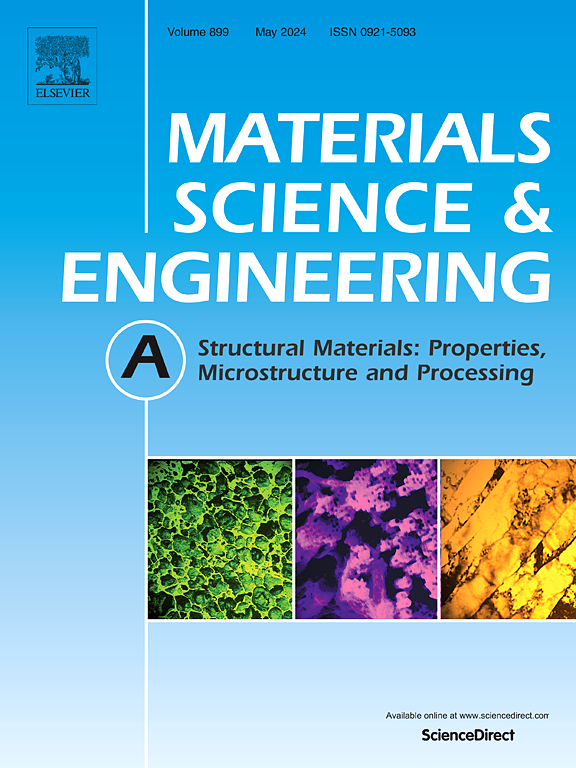Synergistic increasing the Strength–Elasticity in a CoNiV medium-entropy alloy via cold drawing
IF 7
2区 材料科学
Q1 MATERIALS SCIENCE, MULTIDISCIPLINARY
引用次数: 0
Abstract
The development of high-performance ultraelastic metals with exceptional strength and large elastic strain limits is critical for a wide range of industrial applications, including actuators, medical devices, and high-precision instruments. In this study, a novel strategy is proposed to construct a dual-phase lamellar heterogeneous structure in a CoNiV medium-entropy alloy (MEA) by pre-introducing a precipitated phase prior to cold drawing. This structure, composed of elongated κ phases and an FCC matrix, enables an outstanding combination of an ultrahigh tensile strength (2.6 GPa) and an elastic strain limit of 1.5 %. The cold-drawing performance of the CoNiV MEA containing the brittle κ phase is significantly enhanced by the pronounced twinning-induced plasticity (TWIP) effect and the transformation-induced plasticity (TRIP) effect (κ → FCC). The dual-phase lamellar structure effectively disperses cracks and delays stress concentration, contributing to high crack tolerance. Meanwhile, the presence of high dislocation density, fine grain size, residual κ phases, and various nanoscale defects imparts the alloy with exceptional strength. This work innovatively addresses the general limitation of elastic strain in high-strength materials through multi-phase structural design, offering new theoretical insights and a design paradigm for the development of advanced metallic materials with superior strength and elastic deformability.
冷拔协同提高CoNiV中熵合金的强度弹性
高性能超弹性金属的开发具有卓越的强度和大弹性应变极限,对于广泛的工业应用至关重要,包括执行器,医疗设备和高精度仪器。在这项研究中,提出了一种新的策略,通过在冷拔之前预先引入析出相,在CoNiV中熵合金(MEA)中构建双相片层非均质结构。该结构由拉长的κ相和FCC基体组成,实现了超高抗拉强度(2.6 GPa)和弹性应变极限1.5%的出色组合。含有脆性κ相的CoNiV MEA的冷拔性能受到明显的孪晶诱导塑性(TWIP)效应和相变诱导塑性(TRIP)效应(κ→FCC)的显著提高。双相片层结构有效地分散了裂纹,延缓了应力集中,具有较高的裂纹容忍度。同时,高的位错密度、细小的晶粒尺寸、残留的κ相和各种纳米级缺陷使合金具有优异的强度。本工作创新性地通过多相结构设计解决了高强度材料弹性应变的普遍局限,为开发具有优越强度和弹性变形能力的先进金属材料提供了新的理论见解和设计范式。
本文章由计算机程序翻译,如有差异,请以英文原文为准。
求助全文
约1分钟内获得全文
求助全文
来源期刊

Materials Science and Engineering: A
工程技术-材料科学:综合
CiteScore
11.50
自引率
15.60%
发文量
1811
审稿时长
31 days
期刊介绍:
Materials Science and Engineering A provides an international medium for the publication of theoretical and experimental studies related to the load-bearing capacity of materials as influenced by their basic properties, processing history, microstructure and operating environment. Appropriate submissions to Materials Science and Engineering A should include scientific and/or engineering factors which affect the microstructure - strength relationships of materials and report the changes to mechanical behavior.
 求助内容:
求助内容: 应助结果提醒方式:
应助结果提醒方式:


